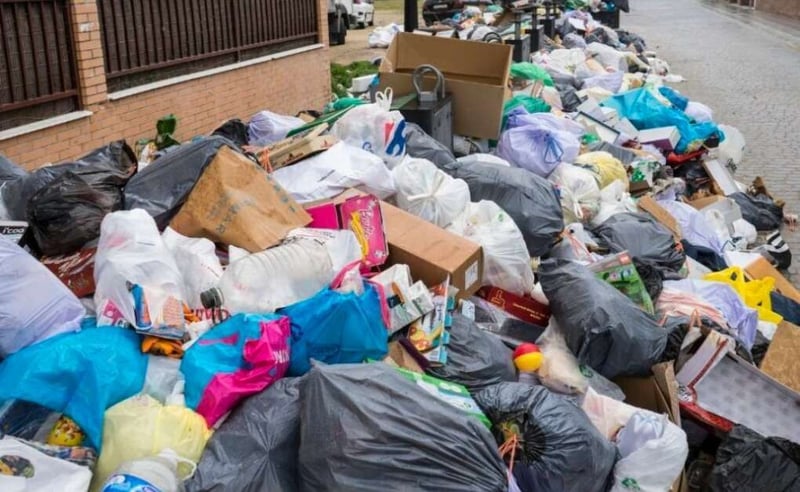Who Manages the Waste in South Africa?
Written by: Josh Maraney Save to Instapaper
I. Introduction
Waste management is a critical issue in South Africa, as it is in many countries around the world. Effective waste management is essential not only for public health but also for preserving the environment for future generations. This article aims to explore the various entities responsible for managing waste in South Africa, shedding light on their roles, responsibilities, and the challenges they face.
II. The State of Waste Management in South Africa
South Africa generates a significant amount of waste, ranging from household garbage to industrial waste, and hazardous materials. The management of this waste presents a considerable challenge, with issues such as illegal dumping, lack of recycling facilities, and inadequate waste collection services in some areas. The consequences of improper waste management are severe, leading to environmental pollution, public health risks, and detrimental impacts on wildlife.
III. Government Role in Waste Management
The South African government plays a pivotal role in waste management, setting policies and regulations at a national level. The Department of Environmental Affairs is primarily responsible for these tasks, establishing guidelines for waste disposal, recycling, and waste reduction. At the provincial and local levels, governments are responsible for implementing these policies, which includes providing waste collection services and managing landfills. The government also initiates various waste reduction and recycling programs to promote sustainable waste management practices.
IV. Private Sector Role in Waste Management
The private sector also plays a significant role in waste management in South Africa. Numerous private companies specialise in waste collection, disposal, and recycling. These companies often bring innovation and efficiency to waste management, using advanced technologies and methods to handle waste. However, they also face challenges, such as fluctuating commodity prices for recyclables and the need to comply with environmental regulations.
V. Community and Non-Profit Organizations Role in Waste Management
Community groups and non-profit organisations are increasingly involved in waste management in South Africa. These entities often focus on specific areas, such as promoting recycling, educating the public about waste reduction, or cleaning up illegal dumping sites. They play a crucial role in raising awareness about waste issues and encouraging individuals to take responsibility for their waste.
VI. Future of Waste Management in South Africa
The future of waste management in South Africa is likely to see several emerging trends. These include the development of waste-to-energy technologies, which convert waste into usable energy, and zero waste initiatives, which aim to reduce waste to the absolute minimum. These trends have the potential to significantly improve waste management practices in South Africa, making them more sustainable and efficient.
VII. Conclusion
Waste management in South Africa is a complex task, involving a range of entities from the government and private sector to community groups and non-profit organisations. Each of these entities plays a crucial role in managing the country’s waste, and their continued efforts are essential for improving the current waste management system. As South Africa faces the future, the collaboration among these entities will be key to embracing new trends and overcoming the challenges in waste management.
Bekabee offers recycling and waste removal services in South Africa:
Get new press articles by email
Top Click is one of South Africa’s leading full-service digital marketing agencies. Our custom-built, cutting-edge solutions are targeted to help you attract customers, convert leads and grow your business. From SEO and Google Ads to social media marketing and digital design, our measurable marketing campaigns deliver results – and ensure that, in a cluttered online marketplace, you rise... Read More
Latest from
- Choosing the Right Pet Food for Your Animals
- Managing Contracts With Simpler Tools
- New Website to Keep Up with the Demand for Online Pet Food Delivery in South Africa
- Machines That Make Packaging Easier
- The Role of Transit Solutions in Modern Connectivity
- How to Get Cheaper Car Insurance Without the Stress
- Making Radiology Workflows Simpler with the Right Tools
- Reduce Late Payments with These Practical Tips
- A Simple Guide to Choosing the Right Forklift for Your Business
- Keeping Your Car in Good Shape with the Right Services
- Why Property and Asset Valuations Matter
- Finding Quality Engines and Scrap Yard Services
- Practical Guide to Rooftop Tents
- Practical Uses of Vehicle Awnings
- A Look at Engine Choices Across Popular Car Brands
The Pulse Latest Articles
- Education Is The Frontline Of Inequality, Business Must Show Up (December 11, 2025)
- When The Purple Profile Pictures Fade, The Real Work Begins (December 11, 2025)
- Dear Santa, Please Skip The Socks This Year (December 10, 2025)
- Brandtech+ Has 100 Global Creative Roles For South African Talent (December 9, 2025)
- The Woman Behind Bertie: Michelle’s Journey To Cape Town’s Beloved Mobile Café (December 9, 2025)
